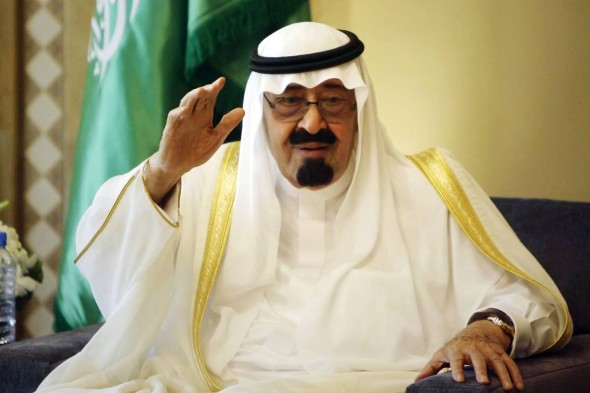World leaders recently converged on Saudi Arabia to pay tribute to the late King Abdullah Ibn Abdulaziz al-Saud whose achievements in ushering in a new era of economic reform and social and educational advancement have drawn widespread recognition.
Though he succeeded to the throne at 81-years-old, King Abdullah was able to achieve considerable success for the Kingdom in a short span of time, having gained a wealth of experience during the reign of his predecessor and half-brother King Fahd.
Under his leadership, the country’s geopolitical clout increased significantly when Saudi Arabia acceded to the WTO in 2005, bringing greater global economic integration and trading power to the Middle East’s largest economy.
The only OPEC country to be a member of the G20, Saudi Arabia’s global influence was further enhanced by exceptional economic results when in 2013 its economic performance surpassed that of all G20 counterparts.
Through King Abdullah’s vision and foresight, Saudi Arabia spearheaded an economic diversification strategy beyond energy, fostering a new and dynamic entrepreneurial culture. In fact, last year’s World Economic Forum acknowledged Saudi Arabia as one of the easiest countries in which to obtain venture capital funding. This has drawn increasing interest from global venture capital firms in search of innovative ideas and opportunities in the Saudi domestic market. He also spearheaded the development of five ‘economic cities’ including the King Abdullah Economic City (KAEC) to encourage foreign investment. During his leadership the Kingdom amassed $780 billion in foreign assets while the public debt/GDP remained at just three per cent.
Committed to educational development, the Kingdom’s oil revenues were ploughed back into ambitious educational programmes. Saudi Arabia’s education budget in 2014 of SR $228 billion ranked the Kingdom as the world leader in education spending. Under the late King’s $138 billion social welfare programme, thousands of Saudi students have been granted scholarships to study at the leading universities of the world. This unprecedented budgetary allocation to education is undoubtedly one of his greatest legacies. Numerous major universities were opened in recent years, including one of the region’s largest research universities, the King Abdullah University of Science and Technology. Since over 50% of Saudi Arabia’s population is under 25-years-old, King Abdullah placed education at the heart of the country’s development agenda.
It was during the late King Abdullah’s reign that major corporations were infused with private sector dynamism, bringing in a new generation of Saudi technocrats to leading public sector companies like Saudi Aramco, Sama, Petromin, Sabic and Sagia. In addition, he encouraged the participation of women in economic and political affairs at a senior level, appointing a woman as deputy minister as well as 30 women to the Shura (the national advisory council).
In an increasingly volatile geopolitical climate, King Abdullah emerged as a deft statesman, ensuring that Saudi Arabia remained insulated from the convulsions of the Arab Spring. Also, in the face of the massive political upheavals which emerged in the wake of the September 11 terrorist attacks in 2001, he demonstrated exceptional political maturity and diplomatic acumen.
In spite of Saudi Arabia’s delicate position with regard to its influence on energy prices and the global economy, King Abdullah spoke out against the U.S. led invasion of Iraq, condemning it as an “illegal occupation.” A relentless advocate for peace in the Middle East, King Abdullah had also put forward a peace plan for the resolution of the seemingly intractable conflict between Palestine and Israel.
The relationship between Pakistan and Saudi Arabia has always transcended that of key allies. Historically, Saudi Arabia has always stood by Pakistan during its darkest times, most notably in the wake of the 2005 earthquake when the Kingdom provided immediate relief and assistance in the face of this devastating human catastrophe.
Over the years, Saudi Arabia has been a reliable and trusted source of energy for Pakistan. As the world’s leading exporter of oil, Saudi Arabia has always played a crucial role in stabilisng energy prices in an ever-febrile political climate. Always cognisant of its influence on global energy prices, the seamless transition of succession to King Salman bin Abdulaziz Al Saud ensured that oil prices rose only by 80 cents to $49, causing minimal disruption to precarious international markets. Adored by his people and renowned for his humility, King Abdullah wielded his immense power with great discretion. Following in the late King’s footsteps, the new leadership has assured that it will continue to act as a moderating force for global energy prices and for peace in the region.






